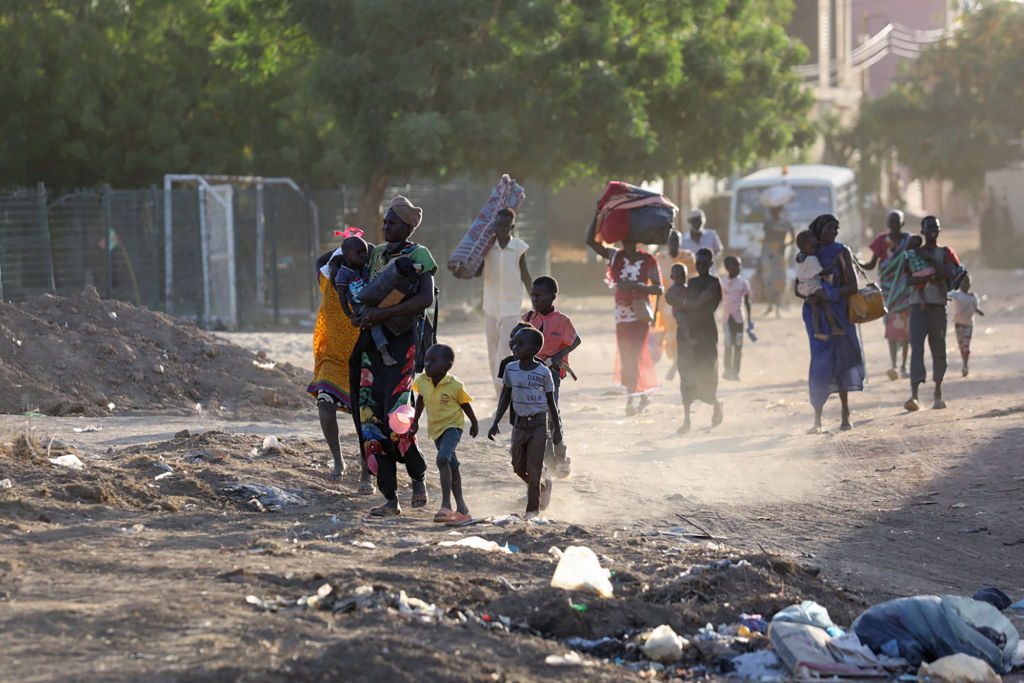
Sudan is in the grip of two interrelated crises. One is grounded in the long-standing struggle between forces of authoritarianism and those demanding pro-democratic transformation of their country. The other lies in a battle for power between two factions within the military. The latter has now overshadowed the former, but resolution of the two have become dependent on one another.
The Sudanese people have been aspiring for pro-democratic changes since the so-called Arab Spring engulfed many states more than a decade ago. But they failed to make tangible headway until their mass protests caused the demise of the long-term dictatorship of Omar al-Bashir in 2019. They thought they’d left behind their turbulent history from the time of independence from Anglo-Egyptian control in 1956 and the bloody civil war that resulted in the independence of Christian dominated South Sudan in 2011, but the forces of authoritarianism hit back, as happened in other Arab Spring-affected states.
The best that could be achieved was to empower a joint military-civilian administration to pave the way for a publicly mandated democratic government. The military, however, led by General Abdel Fattah Al-Burhan, would not easily give up its privileged position that al-Bashir had nurtured for nearly three decades through a policy of vacillating between dictatorial political Islamism and semi-secularism. Al-Burhan, who chaired the Transitional Sovereignty Council, in conjunction with the paramilitary Rapid Support Forces (RSF) commanded by his deputy, General Hamdan Dagalo’, ensured that the military always had the upper hand. He marginalised civilian prime minister Abdallah Hamdok, a highly experienced administrator at national and international levels, and his government. With the date of promised general elections nearing in late 2022, al-Burhan ousted Hamdok and the civilian government in a coup in October 2021. He returned Sudan to military dictatorship, scheduling a general election for July 2023.
Amid fear of the possible results of an election and transfer to a civilian rule, along with the issue of incorporating the RSF into the regular army, differences brewed between al-Burhan and Dagalo. Al-Burhan sought to maintain the pivotal role of the military under his command and to dissolve the RSF within the regular army. Dagalo opposed his boss’s scheme and projected himself onto the side of the pro-democratic forces. Hence the power struggle between the two sides in an open bloody conflict that has raged over several weeks at the cost of hundreds of civilians killed and thousands injured. The population also faces shortages of basic commodities and healthcare facilities. Repeated UN, US, and Saudi brokered ceasefire deals have been broken. Both factions fear that one side’s victory will result in the purging of the other. They are set to battle it out at all costs.
The conflict has serious regional and international ramifications. It has already driven many refugees into neighbouring countries, Egypt and Saudi Arabia in particular. With more Sudanese and foreigners caught up in the conflict and desperate to leave the country, a combined humanitarian and refugee crisis is in the making that has already stretched the resources of the UN and other international agencies. This comes on top of a resource and supply shortage generated by the Ukraine war, climate change and the Covid pandemic. Sudan is in a geographical zone that has suffered most from natural calamities, especially long dry periods.
Its instability could spill over into neighbouring states which may support one side or the other. However the conflict ends may impact Sudan’s neighbours. Although Sudan is not the focus of intense international rivalry, all the major powers have been involved in the country at one time or another and they are keeping an eye on each other with a view to protecting their direct or indirect interests. China is an important economic partner of Sudan. Russia and Sudan reached an agreement in late 2020 for Moscow to establish a naval base at Port Sudan, which will house 300 personnel and four naval ships, including nuclear-powered ones, when it’s completed. A major humanitarian aid provider, the US is keen to ensure that Chinese and Russian footprints in Africa are contained and it’s very aware of Sudan’s strategic location.
Whatever the outcome of this bloody factional conflict, the struggle for the soul of Sudan in terms of whether or not it continues towards democracy is likely to persist for years. For a stable and secure Sudan, Al-Burhan and Dagalo need to reach a compromise and transfer power to an elected civilian authority. But this may not come soon enough for the suffering Sudanese people.

